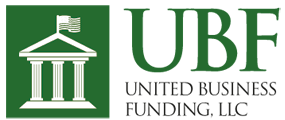Understanding the different ways to access capital and cash flow is crucial if you’re running a business. There are many reasons you could need an injection of funds, such as: repairing office damage that occurred during a bad storm, hiring new team members, or making strategic business investments. Whatever the situation may be, getting the cash you need in a timely manner is critical. There are many routes you can take, but two common ones are taking out a small business loan or getting a merchant cash advance.
Small business loans and merchant cash advances are two entirely different forms of lending, but both with a similar outcome of providing funds when needed. We’ll take you through what these two options are, as well as some of the benefits and drawbacks of each.
The Basics of a Small Business Loan
Many people are familiar with the overall idea of lending, and a small business loan isn’t much different. There is a set of criteria used to determine whether a business or business owner is a good candidate to lend money to, including the health of the business and the credit score of the owner. If the lender, such as United Business Funding, determines that the loan is safe to grant, the business can get a sum of cash in a matter of days.
When repaying a small business loan, monthly payments at a set interest rate are determined in the terms of the loan, and the business owner agrees to pay back the amount based on the payback schedule.
Pros of a Small Business Loan:
- Your money can be accessed quickly.
- Payback schedules can be flexible based on your business model.
- UBF and other reputable lenders will help ensure that you don’t get a loan that overextends your business and becomes difficult to pay back.
Cons of a Small Business Loan:
- Lenders may have high interest rates which make the overall payback greater than the amount you received.
- You’ll need to provide proof of monthly revenue and deposits via your bank statements.
What is a Merchant Cash Advance?
A merchant cash advance will provide businesses with a lump sum of money at an agreed-upon amount, but the payback process is not set in monthly installments, rather, it is based on a percentage of future debit card and credit card sales your business makes. This means that you’ll pay back the cash advance at a rate that coincides with your monthly business performance.
Merchant cash advances are becoming more common amongst small business owners because they offer flexibility that is harder to come by with a small business loan. Here are the pros and cons of merchant cash advances:
Pros of a Merchant Cash Advance:
- Monthly payback amount changes based on your credit and debit card sales for that month. During a slow month, you’ll pay back less than you would during a high sales month.
- You’ll always have the cash flow to continue running your business while you repay the advance.
- You can get additional capital before your initial advance is paid off.
Cons of a Merchant Cash Advance:
- Merchant cash advances can have high interest rates due to the nature of the lending process.
- Setting a payback schedule dependent on future sales can be risky.
- There may be limitations within the advance terms, such as not being able to switch credit card processors or change hours of operation.
United Business Funding Services Both Options
Whether you think a small business loan or merchant cash advance might work better for you, UBF offers both. Our team can help talk you through the details of each option to determine the best route to take. You can also get a FREE quote on our website!

